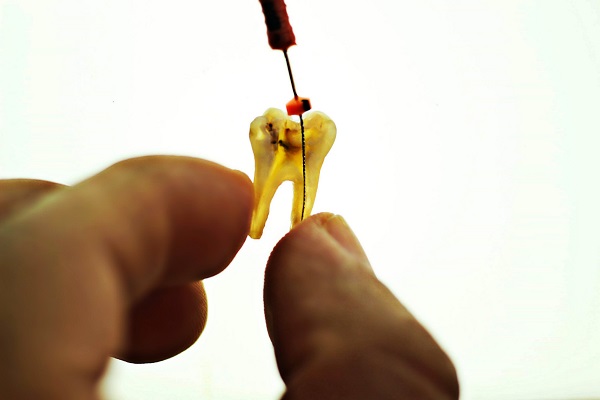When Is Endodontics Necessary?

Endodontics may be necessary if the pulp inside of the root of a tooth becomes damaged, decayed, or infected. This generally arises when the root of the tooth is exposed due to deep dental decay, dental trauma, or periodontal concerns (e.g., gum recession). Endodontics aims to restore the health of the tooth to avoid tooth loss.
Endodontics explained: when is it necessary?
While there are other treatments involved with endodontics as well, the main procedure is root canal therapy. The following is a detailed review of what a dentist looks for when diagnosing a patient, the risks of leaving endodontic concerns untreated, and how the root canal therapy process in particular works.
What does endodontics involve?
Endodontics is the study and treatment of issues related to the dental pulp. This refers to the mass of connective tissues inside of the pulp chamber, which rests inside the root of the tooth. The primary treatment procedure that dentists perform is root canal therapy. This includes the diagnosis of infected, decayed, or damaged dental pulp. Root canal therapy involves the removal of infected or damaged pulp and filling the cavity with a material known as gutta-percha, a healthy substitute material.
What signs indicate a need for endodontics treatment?
The signs that indicate a root canal may be necessary are a sharp tooth pain that does not go away, tooth sensitivity, swollen gums, and a darkening of the tooth. These symptoms should not be ignored, and the patient should visit a professional for diagnosis and treatment as soon as possible after symptoms develop.
What are the risks of not treating endodontic concerns?
The ultimate result of not treating endodontic concerns is typically the loss of the damaged, decayed, or infected tooth. However, this can take some time, and substantial discomfort is likely to exist in the meantime, along with an increased risk of additional concerns such as the spreading of a tooth infection.
How does the endodontics treatment process work?
The endodontics process first begins with a diagnosis of the underlying cause of the symptoms. As mentioned, the first thing the dental professional is likely to check for is tooth decay (particularly severe decay that extends toward the tooth root), severe damage to the tooth, or signs of an oral infection.
If the tooth cannot be treated through less invasive means, a root canal is recommended. This procedure involves removing the infected or damaged portion of the tooth’s root inside of the pulp chamber and filling the tooth with a material known as gutta-percha. Many patients also require a dental crown after root canal therapy to restore the look of the tooth and protect it from further harm.
Schedule an appointment with our dental team
If you are experiencing deep tooth pain or have symptoms that indicate a tooth infection, then call our dental team today. We can examine the severity of the concern and make a professional treatment recommendation. If root canal therapy is the best course of action, then our team can help you through each step of the treatment process.
Request an appointment here: https://www.yourhuntsvilledentist.com or call René A. Talbot, DDS at (256) 382-6690 for an appointment in our Huntsville office.
Check out what others are saying about our dental services on Yelp: Endodontic Surgery in Huntsville, AL.
Recent Posts
Endodontics is primarily thought of as restorative treatment, but it can have cosmetic benefits as well. Your smile is one of the first things that other people notice. A healthy-looking smile can make you look more attractive, compared to having damaged, poorly managed teeth. Restoring the way that a tooth looks can help improve your…
Thinking you may be in need of endodontic services? Your good overall oral health is not only important so you can have a healthy mouth, but when your oral health is in good shape, it is likely that your overall general health will be in good shape as well. This fact makes it a good…
If you are thinking of replacing a lost tooth with dental implants, you will probably have questions for an implant dentist. You may want to know how an artificial tooth compares to a natural tooth. One vital point to note is that implant dentistry seeks to replicate the form and function of natural teeth. However,…
The implant dentist you choose can have a major impact on your overall experience and the long-term results of your dental implant procedure. Every implant dentist has a unique process and a different experience level and finding one that meets your specific needs and preferences can help make the process much more convenient.By putting in…


